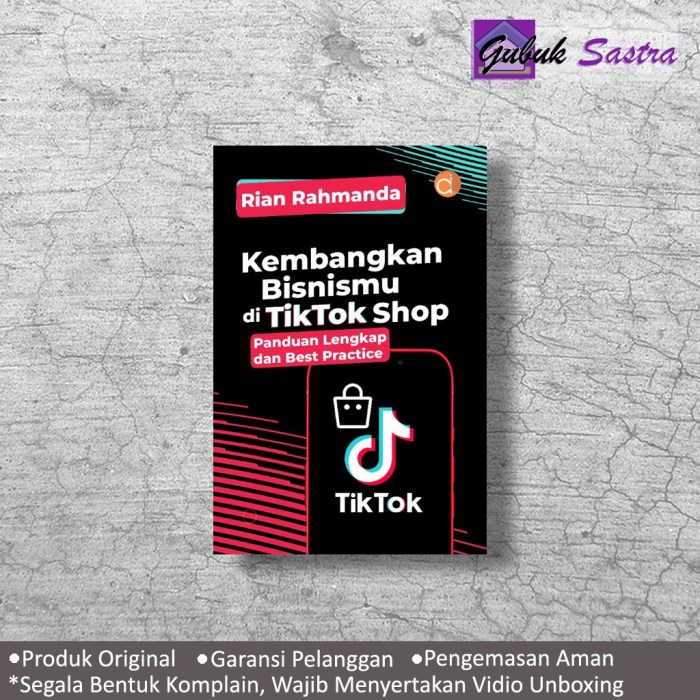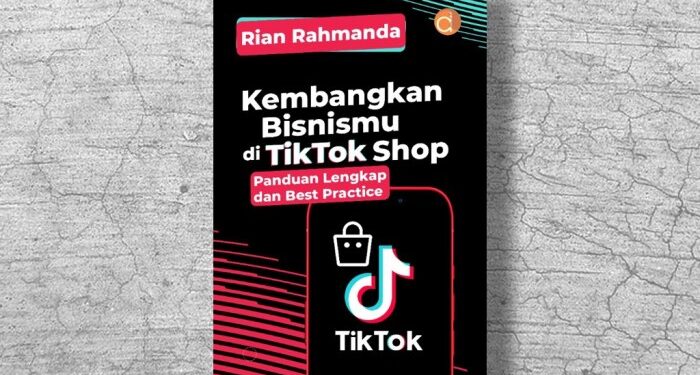Kicking off with The Best Credit Cards for Building Credit from Scratch, it’s essential to understand why establishing credit is a crucial step in achieving financial independence. Building credit from scratch opens doors to better financial opportunities, such as favorable loan interests and rental agreements. In this guide, we’ll explore the various credit card options available for beginners, delve into the criteria for selecting the right card, and offer tips on how to manage it wisely.
As you navigate the world of credit cards, knowing how to build a solid credit history can empower you in your financial journey. With the right tools and knowledge, you can establish a good credit score, which can lead to significant benefits down the line, including lower interest rates and improved chances of loan approvals. Let’s dive into the best credit cards for those just starting out on their credit-building path.
Overview of Credit Building
Building credit from scratch is a crucial step in achieving financial stability and securing favorable borrowing terms for future purchases, such as a home or a car. A solid credit history opens doors to various financial opportunities, allowing individuals to access loans, credit cards, and even rental agreements with more ease. With a good credit score, you can save money through lower interest rates and improved terms across different financial products.Understanding how credit scores are calculated is essential to navigating the credit landscape effectively.
Credit scores generally range from 300 to 850, and various factors contribute to this score. The primary components include payment history, amounts owed, length of credit history, types of credit used, and new credit inquiries. Each of these elements plays a role in determining your creditworthiness and potential risk as a borrower.
Importance of a Good Credit Score
Having a good credit score comes with numerous advantages that significantly impact financial health and lifestyle choices. A high credit score typically leads to:
- Lower interest rates on loans and credit cards, which can result in substantial savings over time.
- Increased chances of loan approval, making it easier to finance major purchases or investments.
- Better rental opportunities, as landlords often check credit scores to assess a potential tenant’s reliability.
- More favorable insurance premiums, as some insurance companies consider credit scores when determining rates.
- Access to higher credit limits, providing more flexibility for emergency expenses or larger purchases.
The significance of a good credit score extends beyond mere numbers; it reflects your financial responsibility and influences various aspects of your life. By maintaining a strong credit profile, you establish trust with lenders and improve your overall financial health.
“Your credit score is not just a number; it’s a key that unlocks financial opportunities.”
Financial Expert
Types of Credit Cards for Beginners
When embarking on the journey of building credit, choosing the right type of credit card is essential. Different cards serve various needs, especially for those just starting. Understanding the options available can help you make an informed choice that sets a solid foundation for your credit history.There are primarily two categories of credit cards available for beginners: secured and unsecured credit cards.
Each type has its own features and benefits that cater to individuals at different stages of their credit journey.
Secured vs. Unsecured Credit Cards
Secured credit cards require a cash deposit that acts as your credit limit. This is an excellent way for beginners to build credit, as the deposit reduces the risk for the lender. If you’re considering a secured card, here are some key features:
- Deposit Requirement: Typically, you must deposit an amount ranging from $200 to $500, which becomes your credit limit.
- Credit Reporting: These cards report to the major credit bureaus, helping you build credit history with responsible use.
- Transition to Unsecured: Many secured cards offer the possibility to upgrade to an unsecured card after maintaining good standing over time.
Unsecured credit cards, on the other hand, do not require a deposit and provide a line of credit based on your creditworthiness. They generally have higher interest rates and fees. Here’s what to know about unsecured cards:
- No Deposit Needed: You can start using a credit line immediately, as there’s no upfront cost.
- Varied Terms: Unsecured cards may have diverse rewards programs, interest rates, and fees, often tailored to users with some credit history.
- More Risk: While easier to obtain, defaulting can negatively impact your credit score without the cushion of a security deposit.
Student Credit Cards and Retail Credit Cards
Both student credit cards and retail credit cards are designed to assist specific groups in building credit. They come with unique features and limitations that are important to consider.Student credit cards are targeted at college students who are new to credit, often offering lower credit limits and fewer fees. Consider these aspects:
- Education Incentives: Many student cards offer educational resources to help users understand credit management.
- Lower Credit Limits: These cards typically have reduced limits to encourage responsible spending.
- Rewards Programs: Some student cards provide rewards for good grades or other academic-related achievements.
Retail credit cards, on the other hand, are issued by specific retailers and can only be used for purchases at those stores. Their features include:
- Store-Specific Benefits: Retail cards often offer discounts or rewards on purchases made at the retailer.
- Higher Interest Rates: These cards frequently come with significantly higher APRs compared to other credit cards.
- Credit Building: While they can help build credit, they may encourage overspending due to the exclusive rewards.
In summary, understanding the differences between secured and unsecured credit cards, as well as the specific types like student and retail credit cards, can empower beginners to make better financial decisions as they start building their credit profiles.
Criteria for Choosing a Credit Card
Selecting the right credit card is crucial for individuals looking to build their credit from scratch. The right card can pave the way for a positive credit history, while the wrong choice may lead to unnecessary fees and a poor credit score. It’s essential to understand the key factors that influence your decision when picking a credit card tailored to your needs.Several criteria should be thoroughly evaluated when choosing a credit card for credit building.
These include interest rates, fees, credit limits, and rewards programs. Each factor plays a significant role in your overall credit experience and can influence your financial decisions moving forward.
Interest Rates and Fees
Interest rates and fees are fundamental aspects of a credit card that can impact your financial health. Understanding these components enables you to make informed choices about which credit card to apply for. Credit cards often come with various fees, including annual fees, late payment fees, and foreign transaction fees. Here are key considerations regarding interest rates and fees:
- Annual Fees: Some credit cards charge an annual fee, which can range from $0 to several hundred dollars. For beginners, a no-annual-fee card is generally preferable as it allows you to build credit without incurring extra costs.
- Interest Rates (APR): The Annual Percentage Rate (APR) is critical because it affects how much you’ll pay if you carry a balance. Look for cards with lower APRs, especially if you anticipate not paying off your balance each month.
- Transaction Fees: Be aware of fees associated with balance transfers and cash advances, as these can add up quickly and affect your overall financial strategy.
Understanding interest rates and fees can prevent unexpected costs and facilitate smarter financial decisions.
Credit Limits
Credit limits are another essential criterion to consider when selecting a credit card for building credit. A credit limit is the maximum amount you can borrow on your card, and it can significantly impact your credit utilization ratio.Credit utilization is calculated by dividing your total credit card balances by your total credit limits. Keeping this ratio below 30% is advisable for maintaining a healthy credit score.
Here’s why credit limits matter:
- Building Credit: Higher credit limits can benefit your credit score if you maintain a low balance, showing lenders that you can manage credit responsibly.
- Emergency Access: A higher limit can provide a safety net for unforeseen expenses, allowing you to avoid high-interest loans or borrowing from other sources.
- Expanding Opportunities: As your credit profile improves, higher limits can open doors to better credit products and rates in the future.
Credit limits not only influence your credit score but also provide flexibility in managing your expenses.
Rewards Programs
While rewards programs shouldn’t be the sole focus when choosing a credit card for credit building, they can add value to your overall experience. Some cards offer cashback, points, or miles for purchases, which can be a nice bonus for responsible spending.When considering rewards programs, keep these points in mind:
- Types of Rewards: Some cards offer cashback on all purchases, while others may provide bonuses for specific categories like groceries or gas.
- Redemption Options: Evaluate how easy it is to redeem your rewards, as some cards have restrictions or require you to accumulate a certain amount before you can claim them.
- Alignment with Spending Habits: Choose a card with a rewards program that aligns with your typical spending habits to maximize your benefits.
Rewards programs can enhance your credit card experience, but they should complement your credit-building efforts rather than overshadow them.
Top Recommended Credit Cards
Building credit from scratch can be a daunting task, but choosing the right credit card can make the process much easier. For beginners, selecting a credit card that offers favorable terms, low fees, and opportunities to earn rewards can set the foundation for a solid credit history. Below is a comparison of some top recommended credit cards tailored for those looking to build credit.
Credit Card Comparison Table
The following table Artikels key details about the top recommended credit cards for building credit, including fees, interest rates, and rewards programs.
| Credit Card | Annual Fee | APR | Rewards |
|---|---|---|---|
| Discover it® Secured | $0 | 22.99% Variable | 1% Cashback on purchases, 5% on rotating categories |
| Capital One Platinum Credit Card | $0 | 26.99% Variable | No rewards |
| OpenSky® Secured Visa® Credit Card | $35 | 19.64% Fixed | No rewards |
| Petal 1 Visa Credit Card | $0 | 15.24% – 29.24% Variable | 1%
|
Discover it® Secured
The Discover it® Secured card is an excellent option for those just starting out. It requires a security deposit, which serves as your credit limit, allowing you to build credit responsibly. With no annual fee, cardholders earn 1% cash back on all purchases and 5% on rotating categories, making it a rewarding choice. Discover also matches all cash back earned in the first year, providing an additional incentive to use the card regularly.
Users frequently praise its user-friendly mobile app and responsive customer service.
Capital One Platinum Credit Card
The Capital One Platinum Credit Card is a straightforward option with no annual fee and a focus on helping users build credit. Although it doesn’t offer rewards, it enables cardholders to access higher credit limits after making on-time payments. The variable APR of 26.99% is on the higher side, but responsible usage can lead to credit limit increases and ultimately better offers in the future.
Users appreciate the online account management features and flexibility that this card provides.
OpenSky® Secured Visa® Credit Card
The OpenSky® Secured Visa® Credit Card caters to those with limited credit history. With a $35 annual fee and a fixed interest rate of 19.64%, it is a solid choice for establishing credit. It requires a refundable security deposit, and while it lacks rewards, it reports to all three major credit bureaus, which is essential for building credit. Customers value its simplicity and the fact that there is no credit check during the application process, making it more accessible.
Petal 1 Visa Credit Card
The Petal 1 Visa Credit Card stands out for its unique approach to creditworthiness, considering factors beyond just credit scores. With no annual fee and a variable APR ranging from 15.24% to 29.24%, it offers 1% to 1.5% cash back on purchases. This card is perfect for those looking to build credit without a traditional secured card. Users appreciate the transparency of its fees and the benefits of earning cash back, making it a favorable option among beginners.
User Experiences and Ratings
User feedback plays a crucial role in determining the effectiveness of a credit card for building credit. The Discover it® Secured card often receives high ratings for its rewards system and ease of use. Capital One’s offering is frequently commended for its credit limit increases, though some users note the high APR. OpenSky users appreciate its accessibility, especially for those with limited credit history.
Petal 1 users value the non-traditional approval criteria and cashback rewards, which enhance the overall experience.
Tips for Using Credit Cards Responsibly

Source: dreamstime.com
Using credit cards responsibly is crucial for building a positive credit history and maintaining financial health. By following a few best practices, you can make the most out of your credit card while avoiding common pitfalls that can lead to debt or a damaged credit score. Here are some essential tips for effectively managing your credit card.
Best Practices for Managing Credit Cards
Adopting responsible habits when using credit cards can significantly impact your financial future. Here are some practices to keep in mind:
- Pay Your Bills on Time: Ensuring that your payments are made by the due date prevents late fees and negative marks on your credit report. Late payments can stay on your credit history for up to seven years.
- Keep Balances Low: Aim to use no more than 30% of your available credit limit. High credit utilization can signal risk to lenders and negatively affect your credit score.
- Monitor Your Statements: Regularly reviewing your credit card statements helps catch errors or unauthorized transactions early, allowing you to dispute them promptly.
- Set Up Alerts: Many credit card companies offer alerts for due dates, spending limits, and unusual transactions. Utilizing these features can help you stay informed and avoid overspending.
- Limit New Applications: While it’s tempting to sign up for multiple rewards cards, too many applications in a short time can lower your credit score. Space out applications to minimize the impact.
“Timely payments and low balances are key drivers of a healthy credit score.”
Maintaining timely payments and low balances is paramount for a number of reasons. Firstly, late payments incur penalties and can significantly harm your credit score. Missing just one payment can drop your score by 100 points or more, depending on your previous credit history. On the other hand, keeping your credit utilization low indicates to lenders that you are not overly reliant on credit, enhancing your score over time.
The Impact of Credit Card Usage on Credit Scores
Understanding how credit cards affect your credit score is essential for responsible usage. Credit scores are calculated based on several factors, with payment history and credit utilization being the most influential. Over time, consistent, responsible use of credit cards can lead to an increase in your credit score, making it easier for you to qualify for loans and better interest rates.When you manage your credit wisely, you build a positive credit history, which reflects your ability to handle debt responsibly.
For instance, if you consistently pay your balance in full and on time, you not only avoid interest charges but also demonstrate financial reliability, which can increase your score significantly.Maintaining a healthy credit score is a long-term endeavor. The habits you develop today will set the foundation for your financial future, whether you are looking to buy a home, finance a car, or secure a personal loan.
Responsible credit card use can pave the way for achieving these goals with favorable terms.
Common Mistakes to Avoid
New credit card users often fall into several common traps that can derail their financial goals. Understanding these pitfalls is essential for building a strong credit history and avoiding unnecessary debt. By being aware of these mistakes and knowing how to navigate them, you can set yourself on the path to a healthy credit profile.
High-Interest Debt
One of the most significant challenges for new credit card users is accumulating high-interest debt. Many users may underestimate how quickly balances can grow when only making minimum payments. This can lead to a cycle of debt that becomes increasingly difficult to manage. To avoid this situation, it’s critical to pay off your balance in full each month. If that’s not feasible, aim to make more than the minimum payment to reduce the principal amount and the interest accrued.
Making timely payments and paying off balances can save you from high-interest charges.
Missing Payments and Its Consequences
Another common mistake is missing payment deadlines, which can severely impact your credit score. Each missed payment not only incurs late fees but also negatively affects your credit history. Over time, this can lead to higher interest rates on existing debts and difficulty obtaining new credit. To prevent this, consider setting up automatic payments or reminders to ensure you never miss a due date.
A single missed payment can lower your credit score by 100 points or more, making future borrowing more expensive.
Exceeding Credit Limits
Exceeding your credit limit is another pitfall that can lead to over-the-limit fees and damage to your credit score. It’s easy to lose track of spending, especially for those new to credit. Keeping a close eye on your available credit can help you avoid this mistake. Regularly monitoring your account and setting personal spending limits can keep you well within your credit range, ensuring that you maintain a healthy credit utilization ratio, ideally below 30%.
Staying within your credit limit is essential for maintaining a good credit score.
Resources for Further Learning

Source: dreamstime.com
Building credit from scratch can feel overwhelming, but there are plenty of resources available to help you navigate the process. Understanding how credit works, the best practices for managing it, and the potential pitfalls can empower you to make informed decisions. Here, we’ll explore various educational resources, including websites, books, courses, and community programs dedicated to personal finance and credit management.
Websites and Organizations for Credit Education
A variety of reliable websites and organizations offer valuable information on credit building. These platforms provide articles, tools, and guides that cater to beginners looking to understand credit.
- Credit Karma: This site offers free credit scores, reports, and personalized recommendations for credit cards and loans.
- AnnualCreditReport.com: The official site for obtaining free credit reports from the three major credit bureaus—Experian, TransUnion, and Equifax.
- National Foundation for Credit Counseling (NFCC): A nonprofit organization providing credit counseling and education resources to help individuals manage their finances.
- Consumer Financial Protection Bureau (CFPB): This government agency offers a wealth of information on understanding credit cards, credit reports, and consumer rights.
Books and Courses on Personal Finance
Books and educational courses can provide deeper insights into personal finance and credit management. Here are some recommended titles and courses that can enhance your knowledge.
- The Total Money Makeover by Dave Ramsey: This book Artikels a straightforward plan for managing personal finances and building wealth.
- Your Score by Anthony Davenport: A comprehensive guide to understanding credit scores and how to improve them.
- Coursera – Personal Finance Courses: Online courses offered by universities covering various aspects of personal finance, including budgeting, saving, and credit management.
- Udemy – Credit Repair Courses: Affordable courses that teach effective credit repair strategies and how to build credit from scratch.
Community Resources for Financial Learning
Local community resources such as workshops and counseling sessions can be invaluable for those looking to improve their financial literacy. These programs often provide hands-on guidance and support.
- Local Credit Unions: Many credit unions offer free financial education workshops for members and the community, focusing on credit building and personal finance.
- Universities and Colleges: Community colleges often host workshops or seminars on personal finance, including credit management.
- Nonprofit Organizations: Local nonprofit organizations frequently hold financial literacy workshops and offer one-on-one financial counseling to educate individuals about budgeting and credit.
- Library Programs: Public libraries may offer free access to financial books, courses, and even host guest speakers on personal finance topics.
“Knowledge is power when it comes to managing your credit and finances effectively.”
Ultimate Conclusion

Source: susercontent.com
In conclusion, the path to building credit from scratch may seem daunting, but with the right credit card, responsible management, and a bit of patience, you can successfully establish a solid credit score. By avoiding common pitfalls and making informed choices, you’ll set yourself up for a bright financial future. Remember, every step you take now will pave the way for more advantageous opportunities later.
So, take a proactive approach and select a credit card that not only suits your needs but also helps you enhance your credit profile.
Quick FAQs
What is the best credit card for beginners?
The best credit card for beginners often depends on individual needs, but secured credit cards are popular as they require a deposit and help build credit effectively.
How long does it take to build credit?
Can I get a credit card with no credit history?
Yes, many banks offer credit cards designed for those with no credit history or low credit scores, such as secured cards or student cards.
What happens if I miss a payment?
Missing a payment can negatively impact your credit score and may incur late fees, so it’s crucial to make payments on time.
Are there any fees associated with building credit cards?
Some credit cards may have annual fees, late fees, or foreign transaction fees, so it’s essential to review the terms before applying.
















